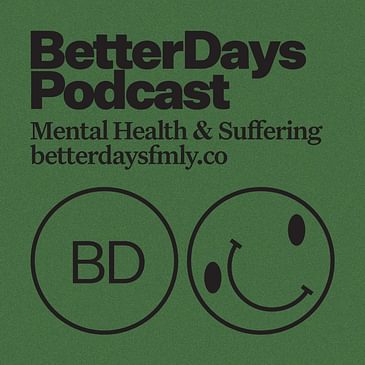The intersection between joy and suffering is hard to process. Hearing someone talk about joy in the midst of suffering can feel deeply conflicting. How are we supposed to find joy in the midst of pain? That is a perfectly fair question. Are we able to feel joy in suffering? In this week's episode, I have a conversation with Stephanie Caine and Jason Caine answering this question and pointing out popular misunderstands about joy and suffering.
For more resources from Better Days check out https://www.betterdaysfmly.co.



